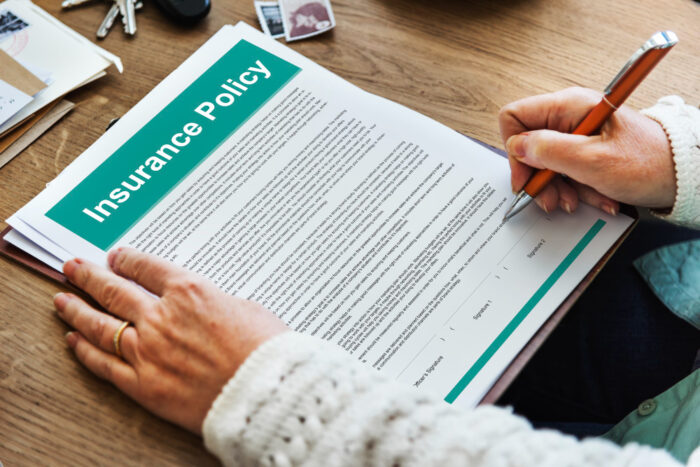
Underpaid Claims: What is it all about and how to resolve it
October 21, 2024 10:00 am Insurance policies are meant for providing one with all the much-needed financial security at challenging moments such as a health crisis, a car accident, or property damage. One of the most frustrating experiences for policyholders is often when their claims are underpaid by the insurer. It generally happens when the compensation from an insurer is not enough to cover actual loss or expenses. While insurers are duty-bound to pay valid claims, errors can sometimes happen, which may result in underpaid claims. In this article, we shall unpack the reasons for underpaid insurance claims, how to detect them, and what can be done to rectify this state of affairs.What Is an Underpaid Insurance Claim?
A further underpayment of an insurance claim is when the insurance company does not pay out what the policyholder is due under their coverage. This exposure to the shortfall between payout and actual loss may prove very stressful on the part of the claimant, who may leave costs that would otherwise have been met by his policy, thus cutting across all forms of insurance, whether health, motor, or property-even affecting the businessman and the common man.Common Reasons Insurance Companies Underpay Claims
Some of the common reasons why insurers will underpay on claims, either willfully or out of ignorance, include the following:
Inadequate Documentation
One of the major causes of underpayment is missing or incomplete documentation. In a normal course of events, insurance companies can only assure fair resolution of claims if they have enough evidence. Where relevant documents are absent, the insurer is likely to attempt to dispense compensation on an assumption instead of total damages or losses.Errors in Assessment
For example, in order to appraise claims, insurance companies depend on adjusters or third-party appraisers. Underestimation of damages due to possible errors while inspecting or appraising can lead to underpaying.Limitations and Exclusions of Policies
Other reasons why underpayment of claims usually occurs have to do with the concept of knowing certain limit or cap “cavities” that typically an insured lacks knowledge of in their policy. It becomes very confusing, especially if some costs or damages are not covered fully despite the anticipation of a higher payout.Diliberate Low-Balling
The insurer pays some small initial low settlement and waits for the settlement to be accepted without a claim. This strategy is more likely to be applied on an unsuspecting policyholder who does not know their rights.Miscommunication or Misinterpretation
Underpayment could also happen due to miscommunication between the policyholder and the insurer or wrong interpretation of the terms. It may lead to unnecessary delay in payout compensation.When to Suspect Your Claim Was Underpaid
You do not necessarily know whether you have low-paid claims or not, but there are those signs that give a clue. Your claim looks surprisingly cheap when your vehicle repair and other medical fees were piling up on bills. The insurance company rejects parts of your claim without explaining why these parts were rejected. What you received as settlement is less than what your policy had written down as within the coverage limits. You feel that you have to accept the low bid because you don’t have enough time to consider your options.What to Do if Your Claim is Underpaid Insurance
If you feel that your claim is underpaid, observe the following procedure:1.Read Your Cover
Carefully read your cover to know what is covered, what’s not, and the conditions of the cover. Ensure your claim falls under what is provided in the terms of your insurance policy.2.Request for Extended Explanation
Ask for a breakdown of how they calculated the payout. This would help you trace errors in the assessment or processing of your claim.3.Gather Additional Evidence
Collect any additional documentation that supports full value of your claim. This may include receipts, repair estimates, medical bills, photographs, and expert assessments.5.File Complaint
If the insurer is not willing to change the offer, then you can appeal to the company. Most insurance companies have an organized procedure for complaints in the event of a disagreement.Engage a Public Adjuster or Lawyer
A public adjuster will work independently and can reassess the claim on your behalf. When the situation becomes worse, you may seek the advice of an attorney specializing in claim law to assist you in negotiating for a better settlement or take actions in court.Escalate to Regulatory Authorities
In situations where the insurer is not cooperative, you may take the issue to regulatory agencies such as IRDAI, which oversees the functioning of insurance companies. Regulatory agencies will make sure the insurers conduct business activities with fair practice.Prevention of Claim Payment Issues in the Future
1.Keep All Records:
Document all communication exchanges with your insurance company, including emails, phone calls, and even receipt documents. Understand Your Policy: In order not to miss a coverage change and the limits, take time to review your policy.2.Act Promptly:
Report claims at your earliest convenience to avoid delays or claim denials. Seek Professional Help Early: In case the claim is a major loss, consider hiring a public adjuster from the very first steps to properly assess it.Conclusion
This is one of the most frustrating experiences, but knowing what to do and being proactive about it will get you on your way toward receiving the money you deserve. Remember, if there is a valid claim, the insurer has the right, based on the terms of your policy, to pay it. Knowing how to check on any underpayment and prepared to question low offers may safeguard you from hardships wrought by underpayments. If you persist and apply the right approach, you will succeed in solving most of the disputes arising in the course of your policy and ensure that your insurance works for you when you really need it. more information visit here: CONTACT MIKE ACERRA Tags: Underpaid ClaimsCategorised in: Commercial, Fire Damage, Individual Service, Insurance, Public Adjuster, Residential, Storm Damage, Underpaid Claims
This post was written by Trishala Tiwari

Comments are closed here.